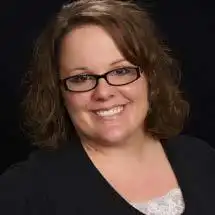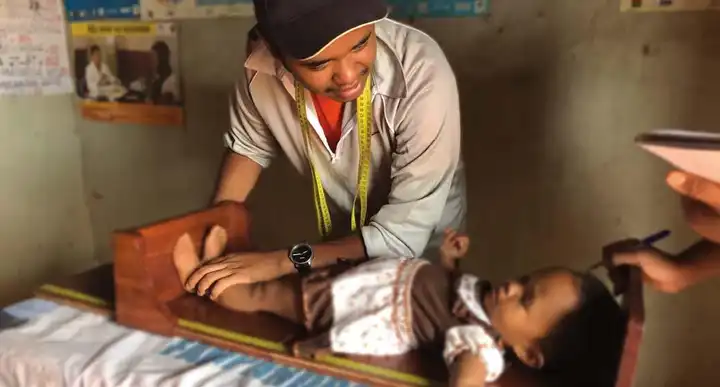
5 minute read
Two doctoral students recognized
Two human development and family science doctoral students have received national recognition for their research.
Clarissa Corkins was selected for a fellowship with the Society for Research in Child Development, an honor that includes a $30,000 stipend to support her research on state early childhood education policy. As one of only two fellows selected nationwide, Corkins will study how Champions of Excellence, an evaluation rubric developed by the Oklahoma State Department of Education for elementary schools, can be adapted for early childhood education programs.
Advertisement
Jennifer Weston was named an Albert Schweitzer fellow, a prestigious honor bestowed to roughly 200 students across the U.S. annually. Weston’s research is dedicated to elders and their families as she studies end-of-life planning, including how families can be proactive in conversations.



OSU fashion design and merchandising ranks high

The OSU fashion design and production and fashion merchandising programs ranked in the top 50 of all schools and colleges in the U.S. for 2021, according to FashionSchools.org. OSU ranked No. 31 in fashion design and No. 35 in fashion merchandising. Within the Southwest region, OSU ranked sixth in fashion design and fifth in fashion
OSU offers new online bachelor’s degree
A new online bachelor’s degree in elementary education offers preparation to teach all subjects for grades 1-8, including mathematics, science, reading/language arts and social studies.
The program is in addition to the existing traditional on-campus bachelor’s in elementary education and is tailored for non-traditional students by providing flexibility to working professionals or those with unique life circumstances.
Health education and promotion major changes to public health
Previously known as health education and promotion, the bachelor of science degree was recently renamed to public health to better reflect the degree’s broad approach to health. The degree incorporates courses like biology and chemistry with behavioral science and theory-based courses. Students can choose between two options: community health and exercise and health.
Nutritional sciences students recognized
Two nutritional sciences doctoral students were nationally recognized for their research.

Christina Sciarrillo received the prestigious Commission on Dietetics Registration (CDR) Doctoral Scholarship for $10,000. Alongside faculty advisor Dr. Sam Emerson, Sciarrillo researches whether levels of fat in the blood after a meal can predict cardiovascular and cardiometabolic disease risk.


Christine Walters was named an Emerging Leaders in Nutrition Science Abstract Recognition Award finalist, a program of the American Society for Nutrition. Walters’ abstract, titled “Facilitators and Barriers of Breastfeeding in Post-Emergency Settlements: Qualitative Findings from Uganda,” was in the top 15 percent of more than 800 abstracts submitted by students and postdoctoral fellows. Walters and her colleagues conducted focus group discussions with parents in refugee settlements to identify barriers to breastfeeding.
merchandising. The fashion design and production program also ranked No. 15 among all public fashion design schools in the country.

“We strive for our students to be cutting edge and equipped with the skills our industry needs,” said Dr. Lynn Boorady, head of the Department of Design, Housing and Merchandising.
Eight students receive national scholarships
Calli Cooper, design, housing and merchandising junior, studied at Regent’s University in London and participated in a fashion styling internship this summer courtesy of a prestigious scholarship from the International Textile and Apparel Association (ITAA). This trip, along with others to New York City, Costa Rica, Western Europe and more, provide students with diverse industry experiences and broaden their career opportunities.
Four design, housing and merchandising students earned prestigious Fashion Group International (FGI) scholarships in recognition of excellence in digital merchandising. Katelyn Allen and Moriah Moody placed first and second respectively in the FGI Digital Merchandising Store Planning and Design scholarship contest, while Eliza Dembinksi and Kendall Minaldi placed first and second respectively in the FGI Digital Merchandising Fashion Portfolio scholarship contest. A total of seven OSU students competed, adapting and expanding projects from classes, internships and Stillwater’s lifestyle magazine ModMuze to create FGI scholarship portfolios.
Lauren Huntely, fashion design and production sophomore, won a prestigious Fashion Scholarship Fund Case Study Scholarship by designing sustainable clothing using scrap materials from commercial clothing production and marketing her plan. Her efforts for the case study-based scholarship earned her $7,500 and networking opportunities with fashion leaders and celebrities across the U.S. Interior design students Mackenzie Erdley and Abby Wilton won scholarships from the Hospitality Industry Network NEWH, the premier networking resource for the hospitality industry.
Nutritional sciences grad seeks to feed the world
Studying agronomy in Madagascar lit a fire in Dr. Hasina Rakotomanana’s heart for rural food insecurity, as he realized the farmers he worked with were unable to feed their own families.
Determined to make a difference, Rakotomanana left Madagascar on a Fulbright Scholarship to pursue a doctorate in nutritional sciences at Oklahoma State University. Now, his doctoral research has uncovered key characteristics of Malagasy smallholder farmers’ food insecurity.
“As I studied nutrition policy at OSU, I found research opportunities that were concrete and applicable for changing peoples’ lives,” Rakotomanana said. “Now, I can use what I have learned to guide nutrition policy.”
After graduating from OSU in spring 2020, Rakotomanana accepted a position with the United Nations’ World Food Program in Rome. He traces his interest in nutrition to living with Malagasy farmers while studying agronomy at the School of Agronomy and Environmental Sciences in Madagascar. Rotations and field trips sent him throughout the country, but during one internship, he saw firsthand the farmers’ struggle to simply feed their families.
“I thought, we must do something about this,” Rakotomanana said. “It is wrong our cities have access to markets and foods while our farmers struggle. sought to study nutritional sciences, and when couldn’t find such a program in Madagascar, I applied for a Fulbright to come to the U.S.”
At OSU, Rakotomanana developed an interest in maternal and child nutrition. Classes ranging from global nutrition and food security to maternal and child nutrition prepared him to understand the specific needs of children under the age of 2, an integral time for a child’s overall growth.

He then traveled back to Madagascar to conduct field interviews with rural farmers for his dissertation research.
Rakotomanana’s travels were largely sponsored by the Marilynn Thoma Chair in Human Sciences Endowment, designed to support those faculty who have brought distinction to the college and the university through their enterprising research, commitment to student learning and leadership.
“I went to a region where more than half of the children under the age of 2 were too short for their age due to chronic malnutrition,” Rakotomanana said. “They have very productive agricultural lands, so I wanted to investigate what could be going wrong.”
After interviewing nearly 400 rural Malagasy households, Rakotomanana found each owned less than one acre of land — too small to feed a family. Mothers were aware of their children’s nutritional needs after years of sensitization and outreach, but they lacked the resources to meet those needs.
Now, Rakotomanana’s research could lay a foundation for policy decisions.
“When I first started in 2016, I could literally count on my hands the number of studies from Madagascar about food insecurity and nutrition,” Rakotomanana said. “We are trying to get more awareness for Madagascar, especially from international aid organizations and the Malagasy government, because that shapes nutrition policy.”










